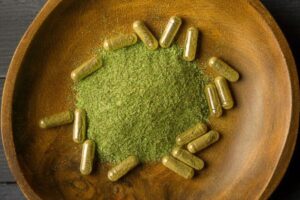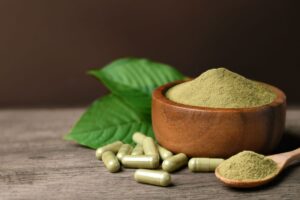
This is Not What We Need. Ban Will Push Kratom Users into Shadows | Opinion
Bryan Mauk, CEO of End It for Good.
Ohio shouldn’t fight a war that Ohioans can’t win.
At the request of Gov. Mike DeWine, the Ohio Board of Pharmacy recently enacted an emergency rule banning the distribution, possession and sale of kratom-related products in the name of public health. In practice, however, the rule is more likely to endanger public health than protect it.
Kratom is a natural extract from kratom trees commonly used to manage pain and regulate mood.
In its natural form, it primarily contains the alkaloid mitragynine.








